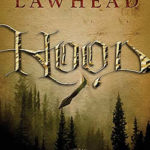Fantasy That Works
This article discussing fantasy is a revised edition of one that appeared at Spec Faith 1.0 back in September, 2008. Surprisingly, these elements still ring true, and may be helpful in writing or ferreting out the best stories. While the article specifies “fantasy,” in reality the points are equally applicable to science fiction and other types of speculative stories.
– – – – –
I’ve had the chance to read a little fantasy published by general market houses—something I’d hoped to do for some time as a way to learn more. My question always is, What makes this work (or not)? Here’s what I’m learning.
Fantasy works if the premise is captivating. For one thing, it can’t seem like a same-old, same-old story. There has to be something new about it—a fresh angle, a different perspective, a unique character, an unexpected result … something. I remember when I first realized how much I loved fantasy and started searching for more, I dove into one book only to find a thin imitation of The Chronicles of Narnia. I read only that one book and moaned and groaned as I did so.
The premise can also be captivating if it is “high concept.” This was a buzz word among editors and agents for a time, though it seems to have faded in the background, at least in active discussions. From what I can determine, a high concept makes the story not only unique but important.
A fantasy that works must be a story with conflict. Things cannot resolve too easily or quickly. The characters need to struggle to accomplish what they set out to do. Which brings up the next point. <
 Fantasy that works has characters that act. They are not passive. They have strong wants or needs and they go out to find a way to acquire the object of their longing. Often these wants and needs morph as the character develops, but in every great story, the character is making things happen, not simply trying to survive a sequence of unfortunate events.
Fantasy that works has characters that act. They are not passive. They have strong wants or needs and they go out to find a way to acquire the object of their longing. Often these wants and needs morph as the character develops, but in every great story, the character is making things happen, not simply trying to survive a sequence of unfortunate events.
The characters are also realistic. This means, they are self aware and will admit to their shortcomings. They have personalities that are different from each other. Their mannerisms might get on a reader’s nerves—or on the nerves of another character. They try things, and sometimes those things work out, but a lot of times, they don’t.
As long as what they try makes sense, the trying itself endears these characters to readers, so another quality of these characters is that they are engaging. They make readers want to cheer them on.
 If fantasy is to work, it must have a dense world. The place must feel new, vibrant, authentic, and not confusing. A number of years ago, I did a few critiques for a writer who had a world much like ours but for no reason I could discern, colors were different as were the names of things. So a rabbit was still a rabbit, it just wasn’t called that, and shrubs were blue instead of green—that sort of thing. The point is, there was no story reason for these differences. They were different just to be different. That doesn’t make fantasy work. The new things, the different things need to be necessary.
If fantasy is to work, it must have a dense world. The place must feel new, vibrant, authentic, and not confusing. A number of years ago, I did a few critiques for a writer who had a world much like ours but for no reason I could discern, colors were different as were the names of things. So a rabbit was still a rabbit, it just wasn’t called that, and shrubs were blue instead of green—that sort of thing. The point is, there was no story reason for these differences. They were different just to be different. That doesn’t make fantasy work. The new things, the different things need to be necessary.
Finally, fantasy works if it has a theme worth having. The point behind the story needs to be woven seamlessly into the fabric so that it doesn’t stand out like an under-dressed guest at the opera. At the same time, it must actually be there. Readers often find more meaning to a story than an author intended, but in a genre dependent upon a good-versus-evil struggle, there needs to be a discernible theme once a reader puts in some thought.
There you have it, in a nutshell. Next time you read a fantasy, see how it measures in these areas: premise, conflict, realistic characters that act, a dense story world, a story that says something important. Then drop by Spec Faith and let us know what you discovered.









































